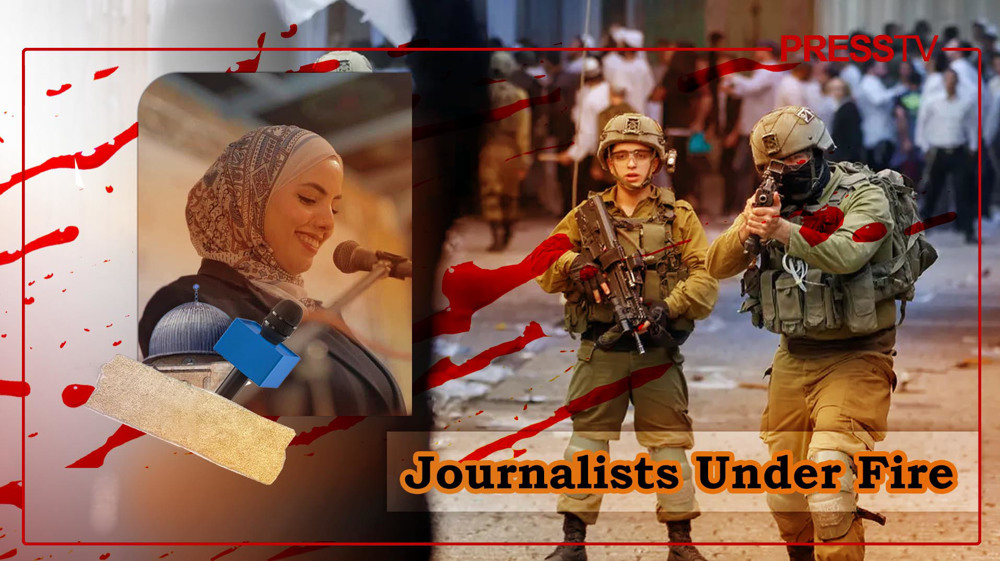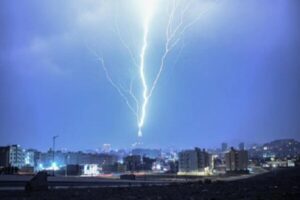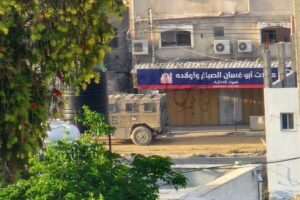By Humaira Ahad
“We had big dreams but the only dream left now is when we die, let our bodies remain intact and recognizable and not be reduced to dismembered corpses in a bag,” were the final words of Palestinian journalist Ayat Khadoura.
“When we die, we dream of having a shroud to cover us and our bodies laid to rest in a grave.”
Khadoura, a freelance broadcast journalist based in the Gaza Strip, never knew she would become the news herself.
In what turned out to be her last message, the Gaza-based journalist expressed legitimate fears that every young Palestinian has amid the genocidal war.
Seen sobbing in the viral video, Khadoura wished for the war to stop but it ended up consuming her as well.
The Palestinian journalist was killed with many of her family members, including her brothers Ayoub and Adham and sister Souad on November 20 when an Israeli airstrike hit her home in Beit Lahya, north Gaza.
Audrey Azoulay, Director-General of UNESCO, in a statement, condemned her brutal killing.
“I deplore the death of Ayat Khadoura. The protection of journalists as civilians is a requirement under international law…… I call for a full and transparent investigation to determine the circumstances of this tragedy,” Azoulay said.
The 27-year-old was a graduate in digital media from Al Quds University in the besieged Gaza Strip.
The young Palestinian woman started her career as a reporter for local media outlets and was presently working as a freelance broadcast journalist.
Having had training in voice-over, Khadoura also produced widely followed online podcasts.
With a great passion for journalism and storytelling, the young journalist would also produce vlogs. Her videos were popular throughout Palestine.
“This is what is good about technology it breaks borders, you need a mobile and you can report from any situation, its scope is limitless,” Khadoura wrote on her Facebook account while commenting on the popularity of her vlogs and podcasts.
Her extensive coverage of the martyrdom of Ibrahim Nabulsi, a Palestinian resistance fighter and senior Al-Aqsa Martyrs’ Brigades commander, who was killed by Israeli forces on August 9, 2022, made her popular.
Her empathetic reportage of the murder of Al Jazeera Arabic journalist Shireen Abu Akleh by the Israeli regime forces in the occupied West Bank city of Jenin last year went viral.
Apart from politics, the 27-year-old was also focused on the traditional Palestinian culture, food, and history. Her videos would cover societal issues, showing the bright side of successful Gazan women.
The mosaic-like work of the young journalist was an attempt to give a gestalt representation of the besieged territory, which is known as the largest concentration camp in the world.
Khadoura’s cherished dreams were shattered while her worst fears came true.
“We dream for the war to stop, to no longer hear the sound of bombs. We had never dreamt of reaching a point where we would be struggling for the most necessities for survival,” she said in the video.
Gaza has become the deadliest place for journalists, with some reports putting the death toll of journalists in the besieged coastal territory since October 7 at 89.
The death toll of journalists during the World War II (1939-1945) was 67 and during the Vietnam War (1955-1975) was 63.
Reporters Without Borders, a media advocacy group, says it has filed a complaint at the International Criminal Court for “war crimes” over the killings of journalists in the current Israeli war on Gaza.




